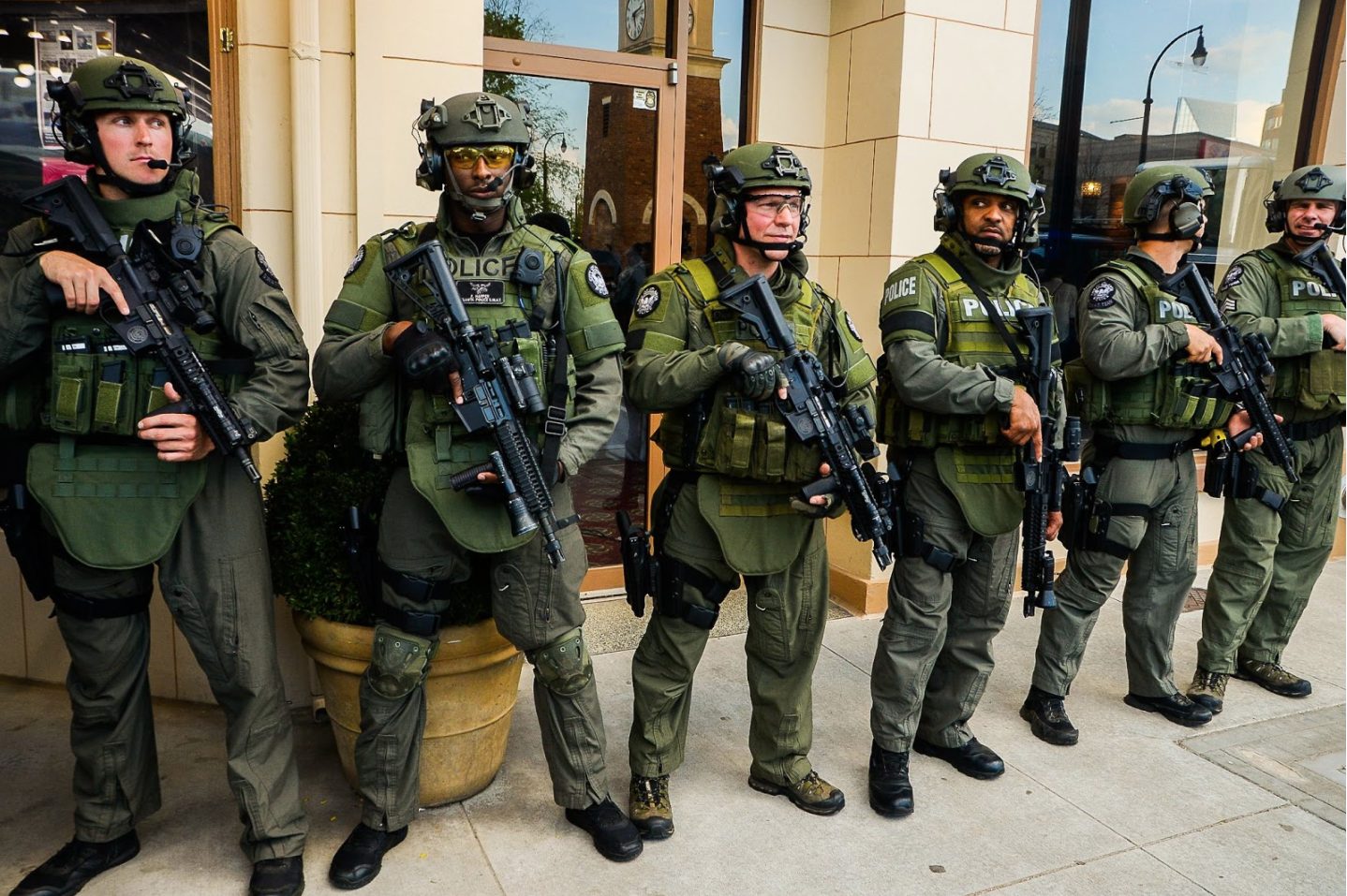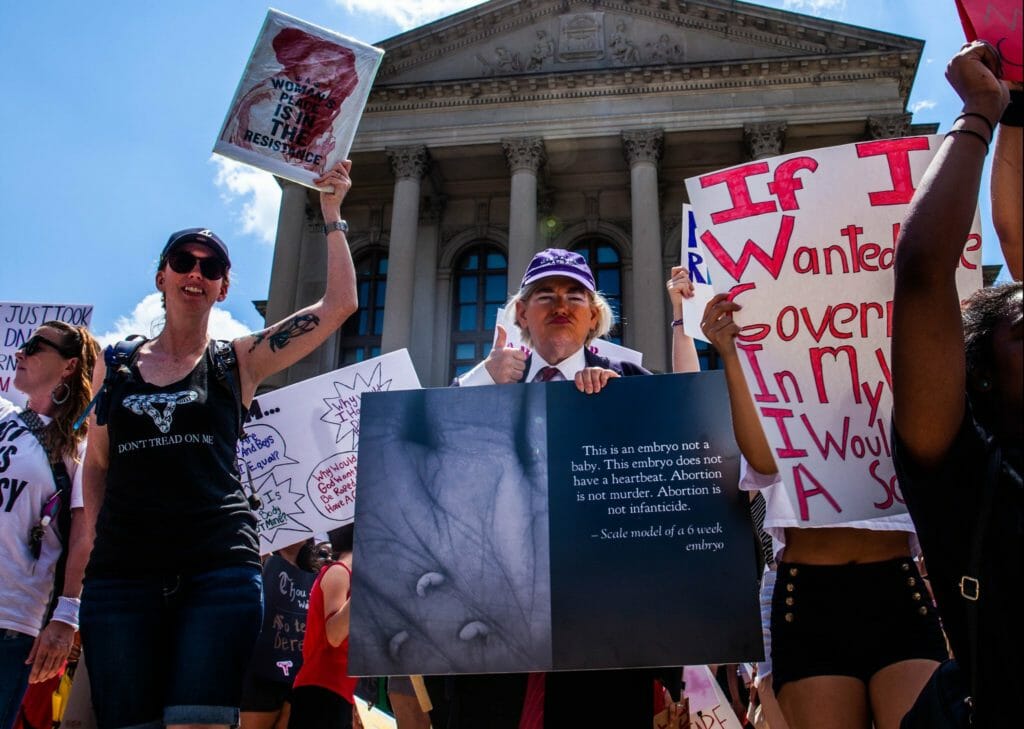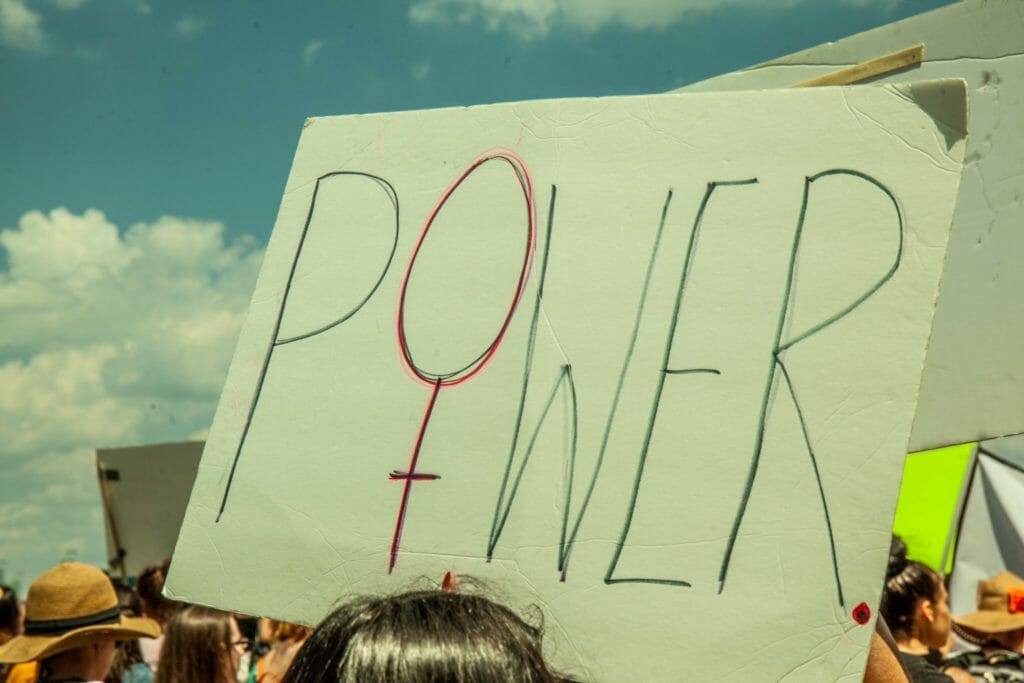For 24 years, the Andrew Young School of Policy Studies at Georgia State University has sponsored a leadership program known as the Georgia International Law Enforcement Exchange. This exchange has seen American law enforcement and public safety officials being sent to countries with less than ideal human rights records. Israel has become the most prevalent partnership in this international exchange.
ATLANTA — In May 1992, law enforcement officials in the state of Georgia collaborated with Georgia State University to form the Georgia International Law Enforcement Exchange, or GILEE. This program, spearheaded by Dr. Robert Friedmann, Professor Emeritus of Criminal Justice at GSU, was created in preparation for the 1996 Olympics that were scheduled to be held in Atlanta. GILEE was given three objectives:
- To enhance inter-agency cooperation between State of Georgia law enforcement agencies and the police force of the State of Israel
- To offer an educational professional program to senior Israeli law enforcement officials in Georgia, primarily in the area of community policing
- To offer an educational professional program to senior Georgia law enforcement officials in Israel, primarily in the areas of counter-terrorism and drug interdiction
Photo Credit: Dimitri Iundt, Getty Images.
The 1996 summer games had law enforcement officials feeling a “spector of terrorism” that was “linked to international events due to the 1972 Summer Olympics in Munich that saw the murder of 11 Israeli athletes. Israel ended up becoming the most logical partner at the early stages of this program, providing counterterrorism training in exchange for American law enforcement expertise in community and urban policing. The goal was to prepare American public safety officials ahead of the Summer Games in Atlanta for the security measures needed to protect athletes and attendees.
With a coalition of 50 local, state, and federal law enforcement agencies, as well as an infusion of 14,000 federal troops, all with the like-minded goal of ensuring public safety for the 1996 games in Atlanta, a bomb still went off at Centennial Olympic Park. The pipe bomb set by Eric Rudolph killed two and injured 111. The 1993 World Trade Center bombing led many to have a growing concern of attacks from Muslim extremists, but officials were not sufficiently prepared enough to recognize the domestic threat posed on the 1996 Olympics.
Despite this setback, GILEE expanded its mission after 1996. The program since provided training assistance in preparation for the 2008 Beijing and 2016 Rio de Janeiro games, with the 2016 Rio de Janeiro games being noteworthy for the prevention of a terrorist attack. Support for the Olympic Games is only one facet of GILEE’s scope. The program has focused on enhancing “law enforcement executive development and international cooperation for the provision of better law enforcement services and public safety through the protection of civil rights.”
Since 9/11, enhancement of “homeland security efforts through international cooperation and training programs” have fallen under GILEE’s umbrella, as well. This expansion has forged partnerships with law enforcement agencies abroad in Brazil, Israel, and the United Kingdom. Domestic police departments in over 25 states and in cities like Atlanta, Ferguson, New York City, and Philadelphia, have sent high ranking officials overseas to participate in GILEE. The program’s problematic nature doesn’t stem from its mission of public safety and enhancement of counterterrorism efforts, but its symbiotic relationship to the now apartheid state Israel, leading to concerns from Muslim civil liberties activists and groups engaged in the Black Lives Matter movement.
During the 2017 Atlanta mayoral election, six candidates were surveyed by the Georgia chapter of the Council on American-Islamic Relations regarding their respective positions on their positions on Islamophobia, civil rights, affordable housing, President Donald Trump\’s policies, and police training, including whether the Atlanta Police Department should continue participating in GILEE. Then-candidate Keisha Lance Bottoms’ response to the question on GILEE was that she would place a “temporary pause” on the program “in order to learn more, and meet with concerned community leaders, before sending new officers overseas.”
When we reached out to Murtaza Khwaja, the Legal & Policy Director at CAIR Georgia, he informed us that Mayor Bottoms has not communicated any such move since her 2017 campaign promise. The mayor’s office did reach out to CAIR Georgia after the death of George Floyd and the subsequent international anti-police uprising where GILEE was discussed, but so far no moves were made to end or pause the program.
The very nature of GILEE is shrouded in secrecy and paranoia that is on brand for American counterterrorism efforts post-9/11. Ada Wood, current AJC intern and former editor-in-chief for GSU’s student paper The Signal, did an investigative report on GILEE and its ties to the university in August 2019. In their reporting, they pointed to resistance met by student activists in 2010 from then State Attorney General Sam Olens, who cited security concerns regarding “sensitive information” being “leaked to aid terrorists” as his reasoning behind denying access to student reporters.
There are three things that make Olens\’ claims unsettling. In his WSB-TV interview with anchor John Bachman, Olens answers the question regarding “somebody bigger” than the students influencing their actions, as if politically aware college students aren’t allowed to look into questionable partnerships with problematic foreign nations. His claim was that “students don\’t wake up one morning and say, ‘I wonder where the Dunwoody police officers are receiving training in Israel on terrorism.’” The use of state laws passed with near unanimous bipartisan support in both the Georgia Senate and House of Representatives in 2011, such as House Bill 261, which restricts access to information regarding programs like GILEE to the public.
Such legislation is troubling, and legally reinforces the state of paranoia agencies live in with regards to counterterrorism, and while sacrificing the transparency a democratic society demands. Unfortunately, given GILEE’s secretive nature, a complete list of its corporate sponsors does not exist. However, to avoid a possible conflict of interest, WSB-TV aired a disclaimer along with their coverage of GILEE: Cox Enterprises, the parent company of WSB-TV and global conglomerate with an estimated $21 billion in revenue, is a sponsor of the GILEE program.
We reached out to Dr. Friedmann directly regarding GILEE and its curriculum, and were met with no response. Despite its secrecy, the deafening silence of its own founding director, and Georgia state law, there are ways where we can make an analysis and critique of GILEE and its potentially harmful role in communities locally and abroad.
First, we must start on the local level with APD’s partnership with the program. According to the City of Atlanta’s Open Checkbook service GILEE related expenditures have reached just over $125,000 since 2017. Almost all of the payments were made by APD, outside of one $10,000 non-descript payment made in July 2017 by the Department of Corrections to the Georgia State University Foundation, the tax-exempt, non-profit responsible for funding GILEE. This payment is only described as a “GILEE Program Leadership Training Program.”
Despite Mayor Bottoms’ pledge to pause APD’s involvement in GILEE, three department delegations were sent to Israel annually since 2017. Two of these delegations were sent during her administration and appear to occur once a year, according to Open Checkbook. No other record of delegations being sent to any of the other foreign countries that GILEE has a partnership with could be found. In fact, the only other nation mentioned in researching the program under the Bottoms administration is the Bahamas and the delegation that was sent here to Atlanta. Even though the program lists China and Egypt as participants, two countries with clear-cut troubling human rights records based in authoritarianism, Israel still remains the most relevant partner with GILEE, and the only country where we could find a record of an APD delegation being sent there.
The first red flag raised regarding this partnership comes when looking at the APD officers who were making per diem payouts for their training time in Israel and their roles in the department.
Israel has become synonymous with counterterrorism since the Palestinan Fedayeen insurgency of the early 1950s. Airports have been a focal point for counterterrorism activity, unfortunately leading to discriminatory behavior in the name of national security. In Israel, 62% of the Israeli Arab population traveling through the airport felt like they were treated fairly, and their bags were checked at a rate five times higher than the Israeli Jewish population, according to a 2008 survey done by the Hebrew University of Jerusalem. Even after the Israeli Airport Authority agreed to stop checking bags in main terminal areas, Arab advocacy groups still continue to push to halt profiling based on ethnicity. APD Deputy Chief Timothy Peek was part of a training delegation to Israel in 2018. During the time of his GILEE experience, he was the commander of APD public safety operations at Jackson-Hartsfield Airport.
Another red flag involves the militarization of American police forces that has become proliferated since the War on Drugs in the 1980s and the War on Terror in the 2000s. Sending police commanders to Israel as part of a training exchange program becomes troubling when we think of the militaristic culture that surrounds Israel in the ongoing Israeli-Palestinian concflict. Haim Bresheeth-Zabner summarizes this culture in An Army Like No Other:
“Israelis perceive themselves as soldiers, whether during the long compulsory service that begins in the late teenage years for both sexes, or later, throughout adult life, in the reserves. Indeed, military training does not start at eighteen, but at the age of fourteen, when high school kids join the Gadna (acronym for Youth Battalions) and start their preparations for army life. By incorporating four years of frequent army training into high school, the army has already oriented the future soldiers before they even see service.”
This military culture combined with the rise of Jim Crow style separation of Arab communities in the West Bank and Gaza should be criticized and even condemned, especially when it exists in a nation that holds itself to a higher standard as the often proclaimed “lone democracy” in the Middle East. In spite of all this, APD continues to send delegates to learn in this environment, while simultaneously advising Israeli security forces. Not only are APD commanders being placed in environments where they learn from a militarized state, they also bring their own flavor of militarized police culture to a state where Palestinans suffer indignities and atrocities at the hands of local law enforcement.
Special Weapons and Tactics (SWAT) is part of this expansion of the “warrior culture” in local police departments described by author Alex Vitale in his 2017 book The End of Policing. Originally formed to deal with rare acts of extremist violence, barricaded suspects, and armed violence directed at police, SWAT has mutated into paramilitary units in police departments across America. SWAT has had a history of civil rights violations across the country, and these units, as well as the Atlanta Proactive Enforcement and Interdiction (APEX units), are used in the City of Atlanta in response to mental health crises and civil unrest.
The militarization of police forces in America has been widely criticized, especially in regards to protest response by law enforcement agencies. This tactic of using militarized units in response to civil unrest can be seen from the West Bank all the way to cities like Ferguson. Law enforcement officials have discussed the things they learned during international exchanges in Israel with regards to crowd control. So it should disturb us locally in Atlanta when Major Dan Rasmussen, commander of the Special Operations Section that has Atlanta’s SWAT teams under its umbrella, participated in GILEE training in 2018 that sent him to Tel Aviv — especially when APEX and SWAT have been used to respond to Black Lives Matter protests in Atlanta.
It’s easy to link Derek Chauvin’s knee on the neck of George Floyd to an Israeli police officer’s knee on the neck of a Palestinian child, but these links are hard to substantiate given GILEE’s secretive nature regarding its curriculum. While we can compare the city of Atlanta’s vast surveillance network to the one seen in the city of Jerusalem, APD did not credit the influence of Jerusalem\’s network on Atlanta\’s surveillance network despite the touting of officer exchanges to Israel.
Still, it is difficult to separate the relationship the Israeli Security Forces have with American law enforcement, and American law enforcement’s influence on tactics used by both the Israeli Police and Israeli Defense Force on the Palestinian population. Even though beat cops are not sent to Israel, their commanders are, and leadership flows from the top down in police departments. What makes criticisms of this international exchange difficult is the overshadowing role Israel has in GILEE.
Nations like China, who have organized concentration camps, have been listed as an international participant of GILEE, but the only evidence of this is one sentence of GILEE’s website and this photo of a Chinese delegation that came to Atlanta. Whereas delegations and per diems involving Israel are the only GILEE related payment found on Atlanta’s Open Checkbook from 2017 to now. Even if these delegations domestically or overseas do not actively promote brutality towards a certain population, the environment where these exchanges does matter.
Beyond the setting of these training sessions, we need to also examine the political rhetoric pushed by its founding director, Dr. Friedmann. Articles advocating the bombing of Iran, condemnations of the United Nations’ criticisms of the War on Iraq, and blaming the Palestinian people for the human rights tragedy they have experienced can be found on the official GILEE website. This propagation of right-wing political ideologies regarding the Middle East become dangerous when we connect GILEE to the International Counter-Terrorism Academic Community (ICTAC). Sebastian Gorka, former Deputy Assistant to President Trump, has a reputation for Islamaphobic views and has been listed as a member of ICTAC.
Having American and Israeli police officers participate in this program given the troubling rhetoric from its founder and the role of policing in both countries is alarming, and should be critiqued. This requires actual analysis that forces us to face hard truths, specifically with regards to criticisms of Israel’s close ties to GILEE and how it can be twisted by the far-right to fit their anti-Semetic narratives and baseless conspiracy theories.
There is also a need to be wary towards “bogus charges” of anti-Semitism that have been lobbed at left-leaning activist groups seeking a divestment of American law enforcement and Israel. Dr. Friedmann himself has accused criticisms of GILEE as being anti-Semitic, making a claim “criticism is aimed only at Israel, and other countries with far worse practices are not getting the same treatment.”
But nations like Saudi Arabia have been widely criticized for their human rights records, with lawmakers condeming links to the murder of journalist Jamal Khashoggi as well as allowing families of the victims of 9/11 to sue the Saudi government. If Dr. Friedmann wants to describe Israel as an “island of democracy in a sea of hostile countries and groups”, it should be fair to make good faith critiques of Israel and its occupation of Palestine, especially when Israel works in conjunction with American law enforcement agencies with the importing and exporting of policing methods.
Israel is being singled out on this issue, but Israel is the most prominent international partner in a police exchange that includes participation from U.S. law enforcement agencies from over 25 states. The New York City Police Department is one major non-Georgia law enforcement partner with GILEE. The department has sent delegations to Israel as well through a similar program to GILEE led by the Jewish Institute for National Security of America. As a means to enhance counterterrorism efforts in the city, the NYPD formed a Demographics Unit which tracked entire Muslim communities. In essence, the NYPD engaged in religious profiling and spied on New York citizens. In the book Enemies Within, authors Matt Apuzzo and Adam Goldman claim that the NYPD took cues from Israeli security forces for this now defunct unit, reinforcing the dangers these exchange programs could have domestically, and raising concerns about Atlanta’s close partnership to one of the bigger exchange programs in the country, one that Mayor Bottoms has shown little genuine interest in ending.
The analyses and critiques of this program requires divorcing the current Israeli government from the overall dignity and justice the Jewish population deserves in the wake of the Holocaust. There also needs to be a confrontation of the police state that has come to fruition here in Atlanta and across the U.S., and the roles GILEE and Israel play in this.
The urgency is palpable when we consider the oppression and police violence Black communities and communities of color domestically face daily, but also the oppression of those in Palestine in a similar, allied police state.




